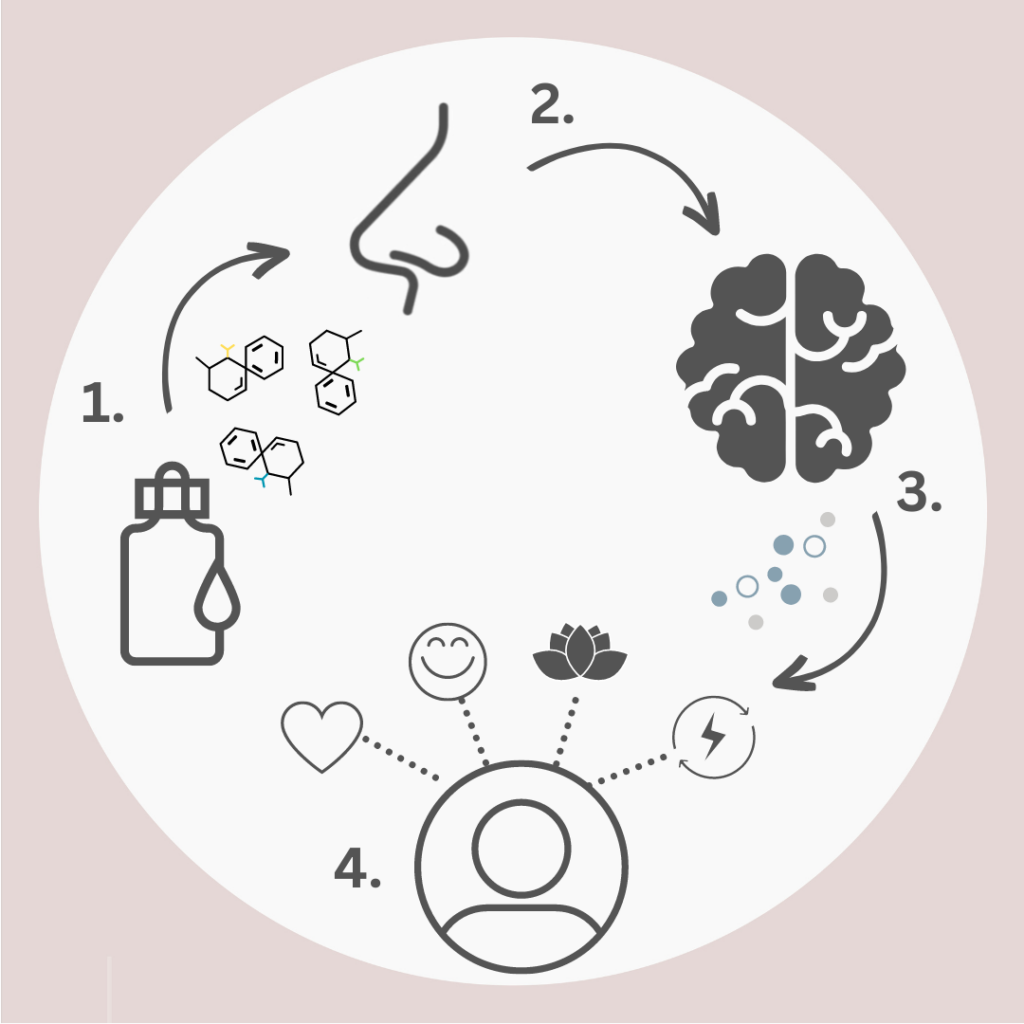
Our smell
Smell is our big ally – even though it may not seem that way when you crinkle your nose after a stepping into dog poop or sitting in a small meeting room with your colleague who seems to have eaten a ton of garlic.
Our sense of smell is the most powerful of our senses. It warns us off rotten food, brings back memories and can trigger different physiological responses in our body. How? Smell is the only sense that is in direct connection with our brain’s limbic system which is responsible for emotions and memories.
Essential oils contain complex aromatic compounds from plant extracts. Making use of the power of our sense of smell and it’s connection with emotions and memories, essential oils are used to promote well-being.
How does it work?
- Essential oils contain various different chemical compounds. When inhaled, they stimulate smell receptors in the nose.
- As a result, chemical signals are send directly to the brain’s limbic system – the center of emotion and memory.
- Depending on the compounds in the oil, the brain receives different signals and responds accordingly.
- This can be affect the mood, relax the muscles, give an energy boost, trigger memories, stimulate the immune system etc.
Scientific studies
Different scientific studies have shown the positive effect of essential oils like lavender and lemon to relieve anxiety and reduce agitation (PMID: 12143909, PMID: 26473822), tee tree oil to improve acne (PMID: 17314442) or the antibacterial properties of citrus oils (PMID: 16734569, PMID: 17105553).
Want to give essential oils a try? Get in touch!
As always, take care, Stephi
In pursuit of well-being. Yours, and that of our planet.
Important: always use high quality essential oils, follow the instructions on the label, and consult an expert when unsure and before using essential oils with children, animals or when pregnant!